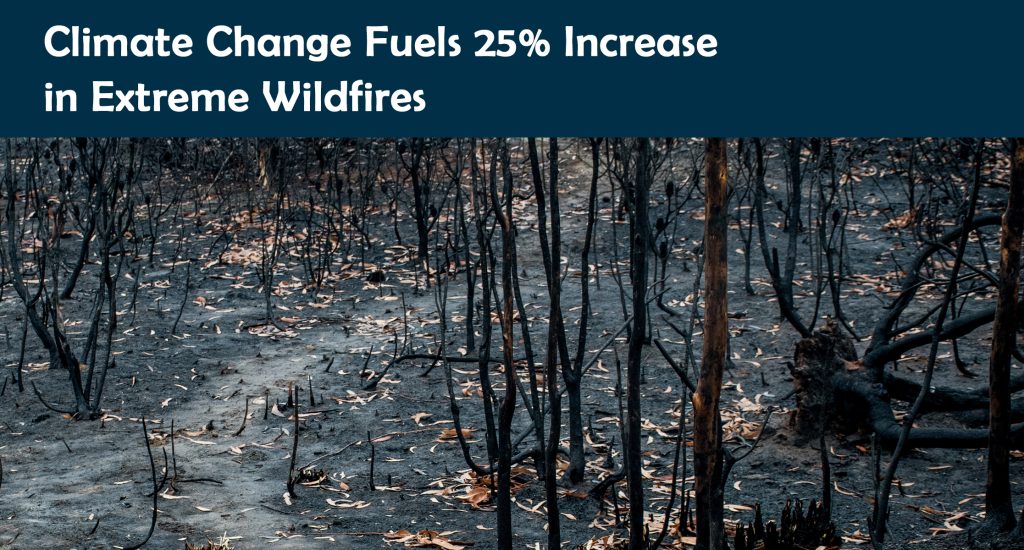
Researchers in San José State University, San Jose, CA, USA, reveal that extreme wildfires have become 25% more frequent due to climate change. Their study links human-induced global warming to the increased occurrence of devastating wildfires. Rising temperatures and drier landscapes have created ideal conditions for these disasters, posing significant threats to ecosystems and communities. This underscores the pressing need for immediate climate action to mitigate wildfire risks and tackle broader climate change impacts. It serves as a stark reminder of the importance of addressing climate change to safeguard our environment and ensure the safety of vulnerable regions facing escalating wildfire threats.

